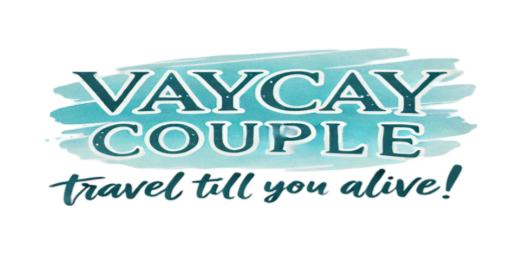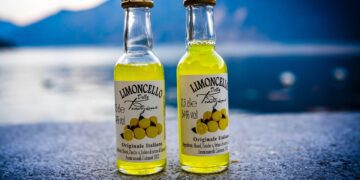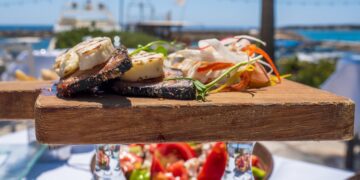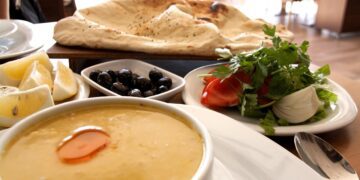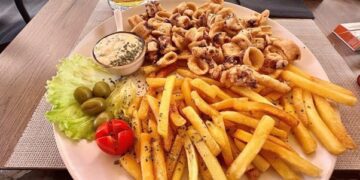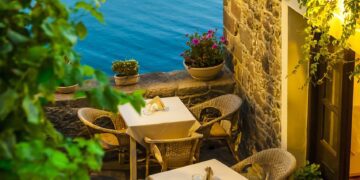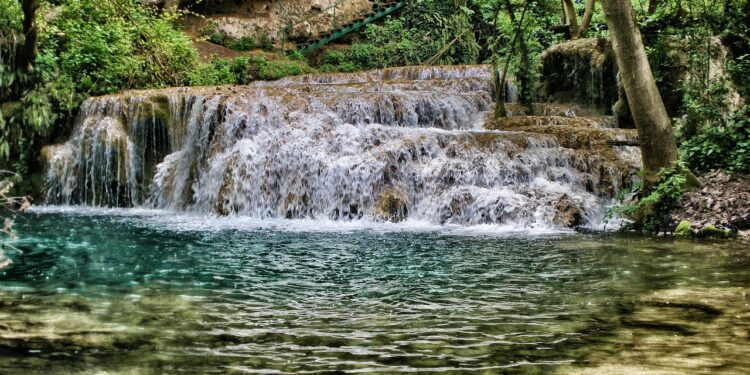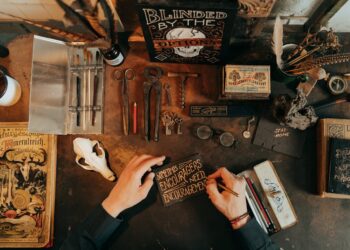Refreshed November 4, 2025.
Author: VayCay Couple.
In our Bulgaria travel guide you will discover that the country offers medieval monasteries, sunflower plains and a 378 km coast at prices up to 40 % below nearby EU spots. Aim for late May or mid-September, when crowds ease, hiking trails bloom and the sea sits near 23 °C. Daily spend: backpack €45, mid-range €80, luxe pair €160.
Quick answers for Bulgaria
- Best time to visit Bulgaria: May–June and September for city breaks and hikes; June–September for the Black Sea; Dec–Mar for ski season in the west.
- How many days in Bulgaria: 10 days is a nice first trip (Sofia → Plovdiv → coast or mountains).
- Average daily budget in Bulgaria (per person): €45–€70 (shoestring), €75–€120 (mid), €140–€200 (comfort).
- Getting around Bulgaria: Intercity buses are frequent; trains serve the main axis; Sofia has metro; driving is easy with an e-vignette on motorways.
- Is tap water safe in Bulgaria? Generally fine in cities; if unsure in rural areas, use bottled or filtered water.
- Power plug in Bulgaria: Type F sockets (Type C fits), 230 V / 50 Hz.
- Tipping in Bulgaria: Common to round up or add ~10% in restaurants; small coins for cafés.
What is the best time to visit Bulgaria?
For most trips, May–June wins on weather and value: wildflowers in the mountains, long days for city walks, and early beach time before the peak. September is a sweet spot—warm seas, calmer crowds, grape harvest vibes inland. July–August is full summer on the Black Sea; expect higher prices in Sunny Beach and Sozopol. Winter brings snow sports in the west (think Rila and Pirin). Christmas markets light up Sofia and Plovdiv, and mountain towns feel cosy.
Bulgaria weather by month (handy planning guide)
| Month | High/Low (°C) | Rainfall | Sea Temp (coast) | Crowds | Price level |
|---|---|---|---|---|---|
| Jan | 3 / −3 | Low | — | Low | Low |
| Feb | 6 / −2 | Low | — | Low | Low |
| Mar | 11 / 1 | Low–Med | — | Low–Med | Low |
| Apr | 16 / 6 | Med | — | Med | Med |
| May | 21 / 10 | Med | 17–19 | Med | Med |
| Jun | 25 / 14 | Med | 21–23 | Med–High | Med–High |
| Jul | 28 / 16 | Med | 24–26 | High | High |
| Aug | 28 / 16 | Med | 24–26 | High | High |
| Sep | 23 / 13 | Med | 22–24 | Med | Med |
| Oct | 17 / 9 | Med | 18–20 | Med–Low | Med–Low |
| Nov | 10 / 3 | Low–Med | — | Low | Low |
| Dec | 5 / −1 | Low | — | Low | Low |
Use this as a planning baseline; check a local forecast before you go.
How to get to Bulgaria
You’ll likely fly into Sofia (SOF) for city/road-trip plans, or Varna (VAR) / Burgas (BOJ) for Black Sea trips. Sofia Airport sits close to the city with metro access; coastal airports are a short taxi or shuttle from most resorts. Trains roll in from Romania, Serbia, Türkiye, and Greece, though buses are often faster inside Bulgaria. Driving is straight-forward; buy the digital vignette before using motorways.
Transport options (into Bulgaria)
| Option | Typical time | Typical cost (one-way) | Book at | Notes |
|---|---|---|---|---|
| Flight to SOF | 2–4 h from many EU hubs | Varies | Airline/app | Metro to centre is quick and easy. |
| Flight to VAR/BOJ | 3–4 h (seasonal routes) | Varies | Airline/app | Best for beach bases. |
| Train from Bucharest/Belgrade | Half-dayish | €25–€60 | Rail sites | Cross-border links exist; check times. |
| Intercity bus | Varies by route | €8–€25 | Bus apps | Often faster than local trains. |
| Car hire | Daily | from €30/day | Major brands | Buy the e-vignette; watch village speed limits. |
How to get around Bulgaria
Trains: Scenic but slower on some lines; fine between major cities.
Buses: Frequent and good value; main hubs link Sofia, Plovdiv, Veliko Tarnovo, and the coast.
Sofia transport: Metro + trams + buses; buy a day ticket or use contactless on the metro gates.
Taxis / ride-hailing: Cheap by EU standards; confirm the rate or use an app.
Driving: Good for mountains and smaller towns; e-vignette required for motorways; parking rules vary by zone in big cities.
Where to stay in Bulgaria (good bases)
Pick one city base and one nature/coast base. That keeps travel simple while covering a lot.
Areas and who they suit
| Base | Good for | Price (€/night, double) | Pros | Watch-outs |
|---|---|---|---|---|
| Sofia (Centre + around Vitosha Blvd) | First trip, museums, food | €60–€140 | Walkable core, metro from airport | Traffic at rush hour |
| Plovdiv (Old Town + Kapana) | Culture, cafés, Roman sites | €55–€120 | Character streets, creative scene | Cobbles/steps in Old Town |
| Veliko Tarnovo | Fortresses, river views | €50–€110 | Dramatic setting, day trips | Hills/steps; book parking |
| Balchik (Black Sea) | Easy seaside days | €70–€150 | Palace, gardens, calm vibe | Seasonal hours |
| Sunny Beach / Nessebar | Beach scene, families, fun | €70–€180 | Long beach, lots of choice | Peak-season crowds |
Useful reads on our site:
- Planning the coast? See our Balchik Travel Guide and Sunny Beach Travel Guide, plus the overview of the Bulgarian Black Sea Coast.
What to do in Bulgaria (top picks)
- Sofia essentials: St. Alexander Nevsky Cathedral, Serdika ruins, Vitosha Boulevard cafés. For a deeper intro, read Everything You Need to Know About Sofia and save it for your phone.
- Plovdiv: Roman theatre, Kapana creative district, Old Town mansions; linger for wine bars at dusk.
- Rila Mountains: Hike the Seven Rila Lakes in clear weather and time a stop at Rila Monastery; bring layers even in summer.
- Pirin & Bansko: Trails in summer; ski in winter; small villages serve grilled meats and shopska salad.
- Veliko Tarnovo: Tsarevets Fortress, Yantra river bends, craft streets.
- Black Sea day:Balchik Palace & Gardens, then a swim and a seafood lunch; or walk the lanes of Old Nessebar.
- Food focus: Try banitsa for breakfast and shopska salad with dinner; our food piece lists where to find the good stuff in cities and markets.
Day trips in Bulgaria:
- Sofia → Rila Monastery / Seven Rila Lakes (long day; go early).
- Plovdiv → Asen’s Fortress + Bachkovo Monastery (easy combo).
- Balchik → Cape Kaliakra (cliff views and sea).
- Sunny Beach → Sozopol (old town charm, beaches).
Costs and money in Bulgaria
- Coffee: €1.50–€3
- Casual meal: €6–€12
- Museum ticket: €4–€10
- City day ticket (ballpark): €4–€6
- Taxi from airport (Sofia): depends on zone/time; still good value compared with most EU capitals
- Budget per person/day:
- Shoestring: €45–€70 (hostel/private room, bus, casual eats)
- Mid: €75–€120 (3*–4*, mixed dining, intercity buses/trains)
- Comfort: €140–€200 (4*–boutique, taxis, guided day trips)
Card payments are common in cities; keep some cash for markets and rural cafés. ATMs are easy to find; avoid dynamic currency conversion on card terminals.
Is Bulgaria safe?
Yes, use normal city sense. Keep bags zipped on busy trams, take licensed taxis or ride-hailing, and watch for common tricks in crowded zones. In the mountains, check weather and trail conditions; carry water and a charged phone. Emergency numbers: 112 (EU).
What to pack for Bulgaria
- All seasons: comfy shoes, light rain layer, universal adapter (Type F), refillable bottle.
- Summer: sun hat, reef-safe sunscreen, light clothes.
- Shoulder months: mid-layers; a warm layer for mountain evenings.
- Winter: insulated coat, gloves, boots with grip (ice possible).
- City notes: churches and monasteries expect modest dress; carry a scarf/shawl.
Bulgaria delivers mountain air, abbey bells and warm Black-Sea surf at a price your bank card barely feels. .
FAQs
EU, UK, US and most Latin American passports get 90-day entry on arrival. Keep passport valid six months past exit date (source: mfa.bg).
Municipal supply meets EU safety limits. In rural wells use a filter bottle or boil five minutes (source: mrdpw.government.bg).
Most huts accept only cash. Withdraw lev notes in big towns before heading uphill. ATM fee averages л5 (€2.50).
Buy a plastic city card л4 (€2) then load ten rides л12 (€6). Tap on board; inspectors carry handheld readers (source: stolica.bg).
A 10 ml vial of Damask rose oil in Kazanlak street market or a hand-painted Matryoshka-style wooden icon.
Non-EU visitors get VAT back on purchases above л250 (€128); fill form at shop, stamp customs when exiting (source: nap.bg).
